UNOC3 creating a momentum: What do ZMT researchers take away from the UN Ocean Conference in Nice
This text is currently only available in English:
More than 15,000 participants including 2,000 scientists and over 60 world leaders came together at the UN Ocean Conference in Nice. Now that the large-scale event has come to an end, we asked ZMT researchers who attended UNOC3 and the preceding One Ocean Science Congress (OASS) what they take with them from Nice.
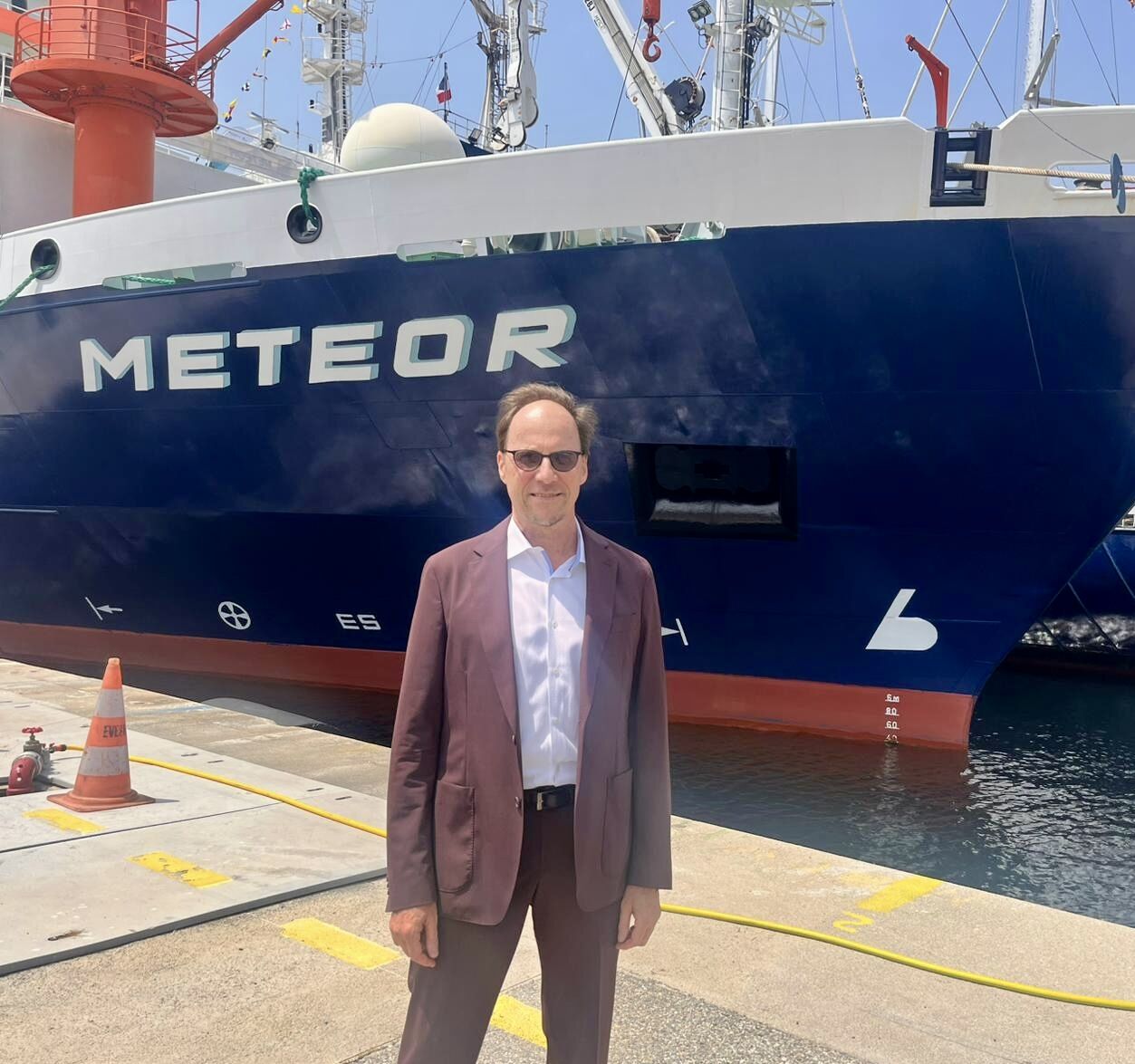
Raimund Bleischwitz in front of the RV METEOR
Prof. Dr. Raimund Bleischwitz, Scientific Director:
I’m feeling re-energised and committed to my role. My quick key take-aways:
1. The role of strong science, including social sciences, with better ocean and costal data remains indispensable; an interdisciplinary, solution-oriented role is fully acknowledged.
2. Philanthropic funding and civil society actors (e.g. ‘rise up for the ocean’) provide tangible support and enable further action for research aiming at societal impacts as well as with policy-makers.
3. New alliances of selected countries and non-state actors are emerging – making the US increasingly small.
This all underscores the research ZMT is dedicated to undertake over the next years, together with many partners and collaborators from all over the world. There is also a role for a renewed German Alliance on Marine Research (DAM) in such international efforts.
For Raimund Bleischwitz' detailed analysis of the UNOC 3 please see here: https://www.leibniz-zmt.de/de/neuigkeiten/im-fokus/on-board/unoc3-creating-a-momentum-analysis-raimund-bleischwitz.html
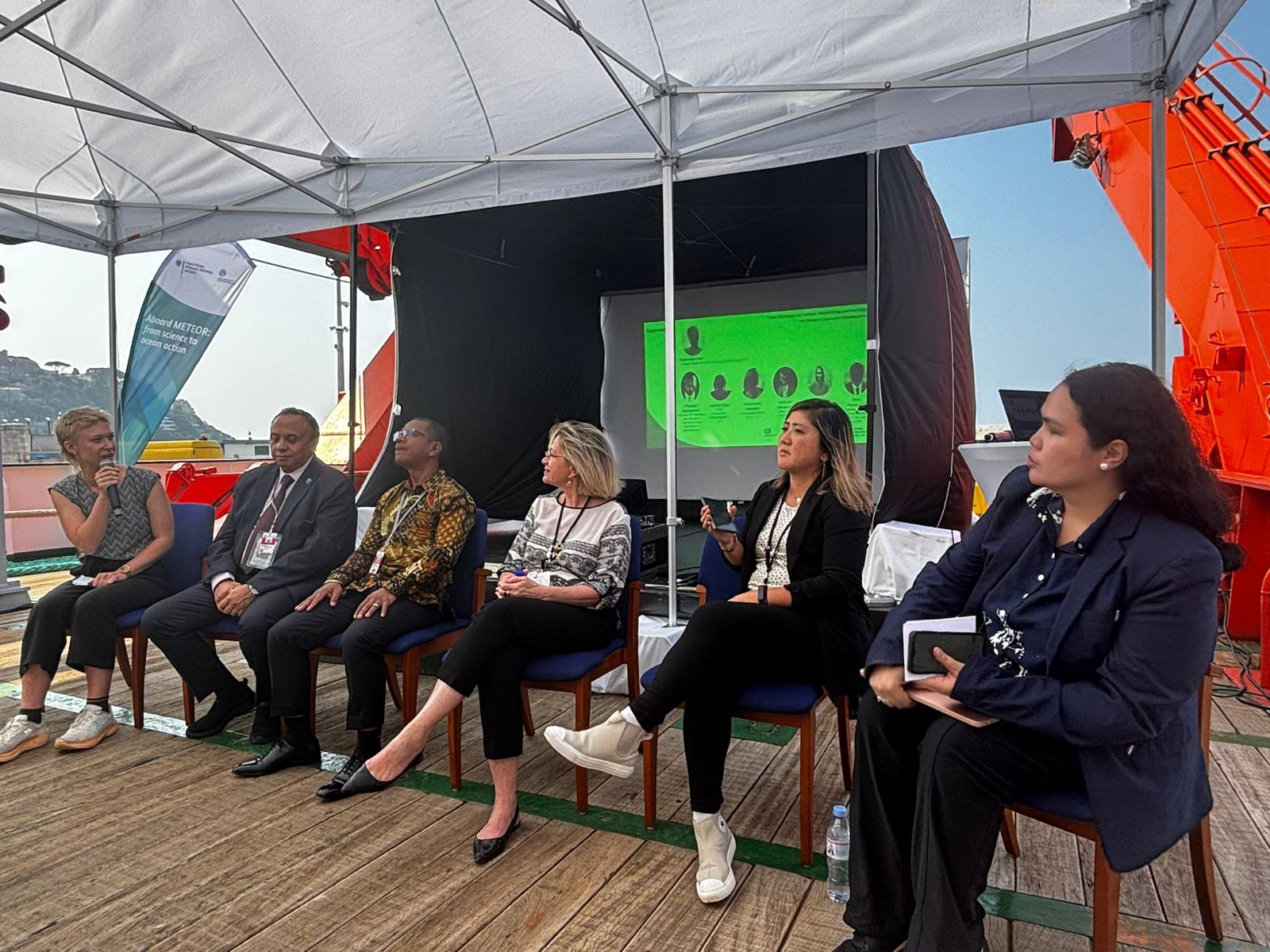
Rebecca Lahl moderating an IOC-UNESCO panel on “From Strategy to Action: Mobilizing Partnerships for Ocean Capacity Development”
Rebecca Lahl, Co-Lead Programme Area 5 “Ocean Literacy, Equity and Leadership”, Head of the Office for Knowledge Exchange (OKE):
The conference has shown me, that we are working on global challenges through solution-oriented research. It is important that we continue to share our findings, hold dialogues and sometimes make concrete demands on politicians. It was fantastic to see so many ZMT Alumni at the UNOC that are now influential people in science, policy and practice. I see the value of training Early Career Professionals and welcoming guests not only for capacity development but also for science diplomacy.
Prof. Dr. Achim Schlüter, Co-Lead Programme Area 1 "Coastal Resources and Sustainable Blue Economy" and Head of the working group Institutional and Behavioural Economics:
We are currently seeing in the world how difficult it is to cooperate and to find consensus. The preferred strategy seems to be to hit and not to discuss. UNOC was a place to discuss; the key ingredient for cooperation, clearly shown by scientific evidence.
Some impressive research vessels came to Nice. A French, a German, a Norwegian, among others. The most impressive one has been the vessel of OceanX from the US, a philanthropic, privately owned vessel, which allows for fascinating marine science. Those research vessels have shown the asymmetric playing field in marine science; no vessel came from Mauritania, Indonesia, or Peru, all countries relying heavily on the blue economy. SDG 17, partnership for the goals, is crucial for the Oceans, or better said, the people who need to live from them.
I had dinner with an Indonesian participant of UNOC, who helps place Blue Bonds worth Millions on the Tokyo Stock Exchange. Those are people meeting and discussing at UNOC. These discussions determine how we will govern our oceans in the years to come.
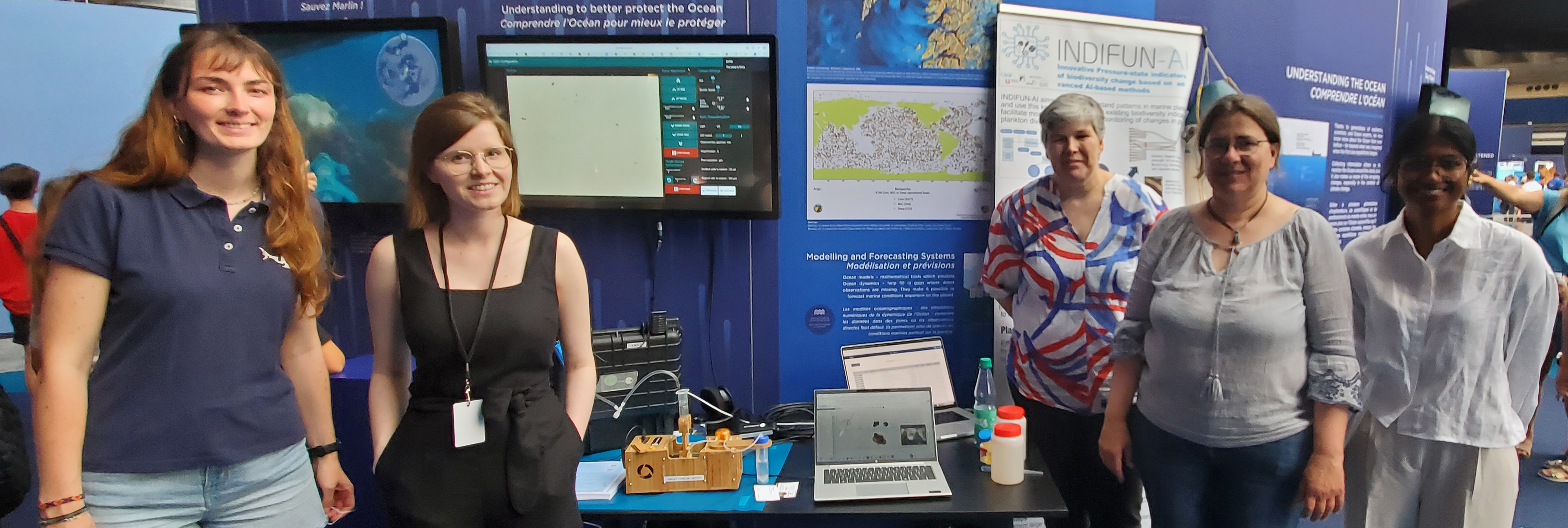
Leonie Dziomba at the "Planktoscope Live Demonstration" during UNOC3
Leonie Dziomba, doctoral candidate:
To me, the conference clearly demonstrated the profound impact of questions of access and inclusion on ocean-related knowledge and decision-making. It was encouraging to see parts of the event open to the public, featuring many well-designed science communication formats, and to witness the strong engagement of my fellow early-career ocean professionals.
A personal highlight was the high level of interest in our PlanktoScope demonstration. I hope this reflects a growing recognition of the value of simple tools in enabling broader participation in research. The accompanying discussions provided valuable input and momentum for my own work.
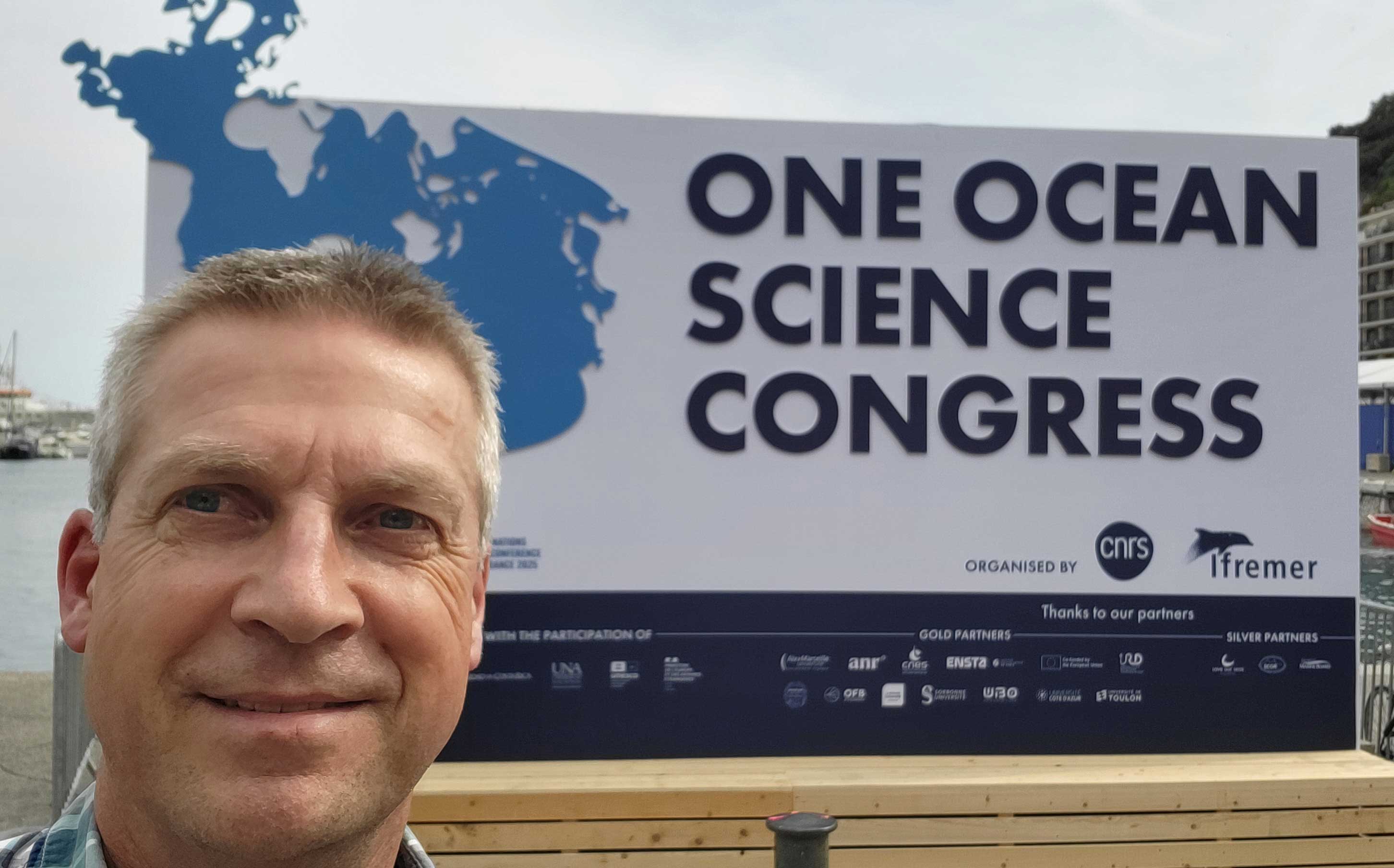
Tim Jennerjahn attended the Once Ocean Science Congress which preceded UNOC 3
PD Dr. Tim Jennerjahn, Head of Programme Area 3 “Land-Ocean Fluxes and Transformation” and Head of the working group Ecological Biogeochemistry:
1. The voice of ocean science is critical and strong.
2. More than 2000 scientists at the OOSC in Nice demonstrated how much societal impact ocean science already has.
3. Inter- and transdisciplinary collaboration is the new normal and ZMT is well positioned.
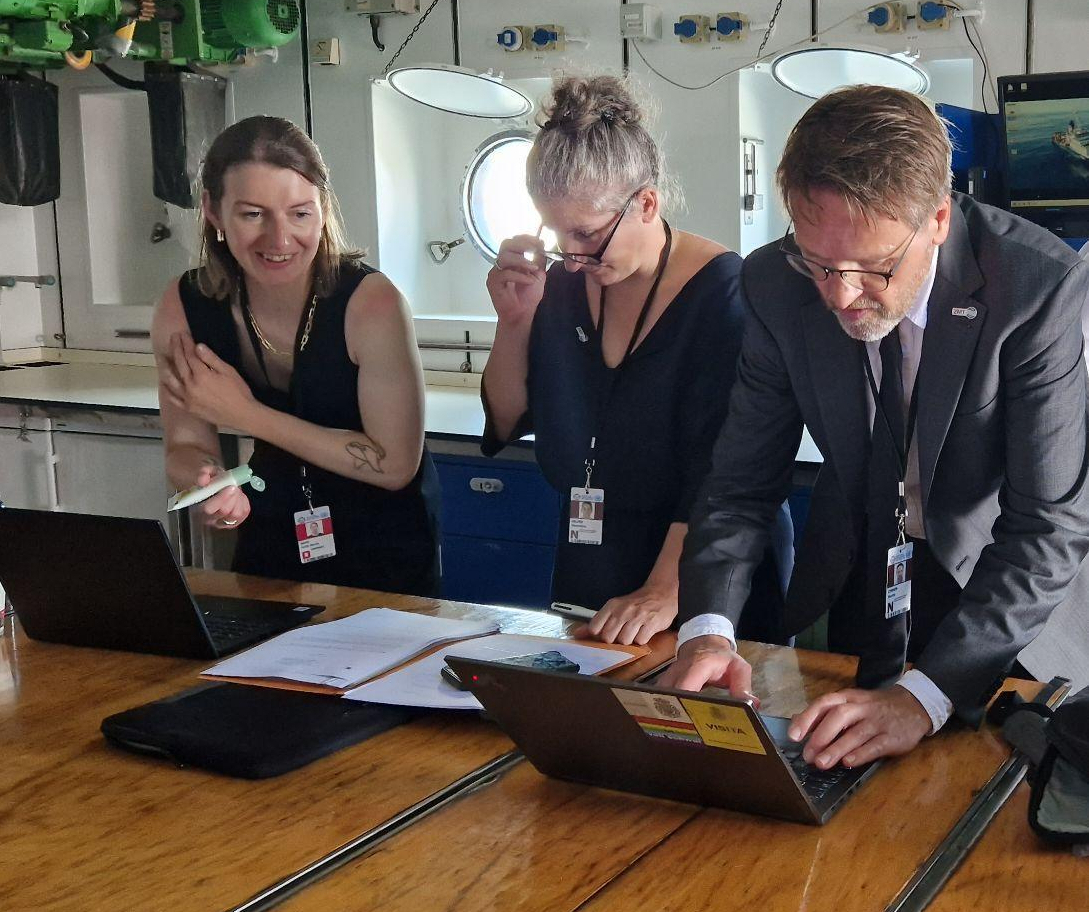
Véronique Helfer and Martin Zimmer during the prepartions for the side event “Federal Foreign Office (AA): Rise for the ocean and its peoples – a call for more action”
Prof. Dr. Martin Zimmer, Head of Programme Area 4 “Ecosystem Co-Design towards a sustainable Anthropocene” and Head of the working group Mangrove Ecology
My major takes from multiple interventions and discussions with friends, colleagues and partners (nothing fundamentally new, but reinforcing and confirming the direction my own work is currently taking):
1. We need to act NOW, basing policies on science and knowledge, translating knowledge into action and action into justice.
2. Key is multilateral communication and action … not only international, but also intersectoral and intergenerational.
3. This includes the involvement and engagement of local ecological knowledge (LEK), local communities, indigenous peoples. We should stop talking about "them" and start letting "them" talk and talking with "them".
4. The dear need for Co-Design reflects a pledge that I had been communicating over the past couple years: As much as we do need curiosity-driven fundamental research for a better understanding of our ocean (and the rest of the world), our work must include, if not focus on, demand-driven research.
5. We have to be good ancestors; we have to leave this one ocean in a good shape for the next generations to come: engage youth and Early Career Ocean Professionals (ECOP) in science, research and knowledge-creation, in exchange and discourse, and in policy- and decision-making.
Dr. Véronique Helfer, Senior Scientist working group Mangrove Ecology:
The intergenerational dialogue was a key topic at UNOC3. I participated in an event from indigenous youth, a vibrant community, dedicated to pushing the voice of indigenous communities and the young generation into the focus of ocean action. The "Citizen of the Ocean", as they call themselves, formulated their demands and commitments in a manifesto. Alongside, our dear colleague from the German Consortium of Marine Research (KDM), Jonathan Heimer, was invited to share an intervention with the Plenary of the Conference. Finally, the closing remark for Germany was voiced by Antonia Spielvogel, a representative of the German youth, through presenting the summary of Ocean Action Panel 4 on behalf of Federal Minister Carsten Schneider, depicting the commitment of Germany to support Youth and Early Career Ocean Professionals.
Nature-based Solutions for Coastal Resilience was another key topic throughout the conference. There was a strong political will to invest in, and exchange knowledge about, coastal resilience, exemplified by the Ocean Rise & Coastal Resilience Coalition launched during a special summit prior to UNOC3. I was pleased to see that the relevance of mangrove ecosystems was being recognized by many governments and non-governmental organizations."





